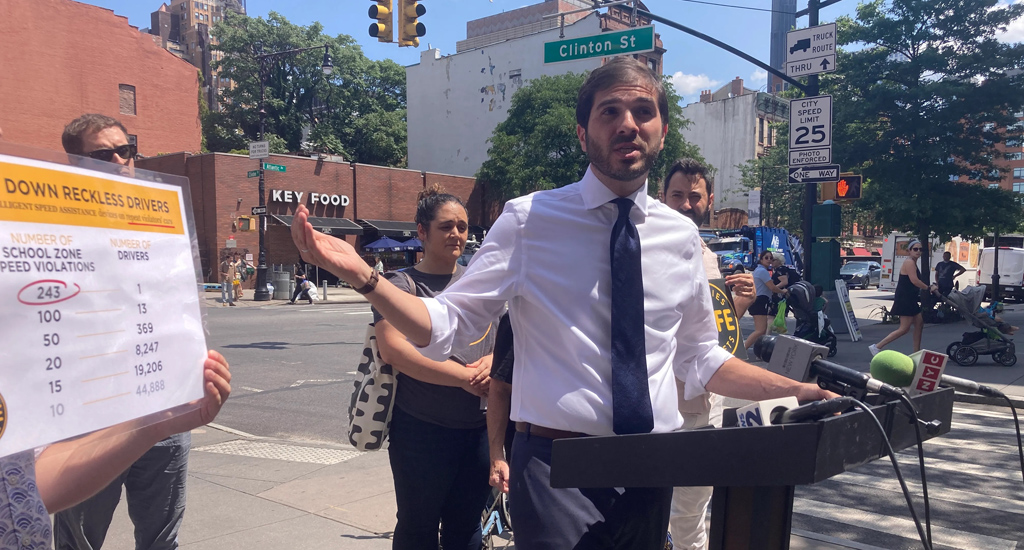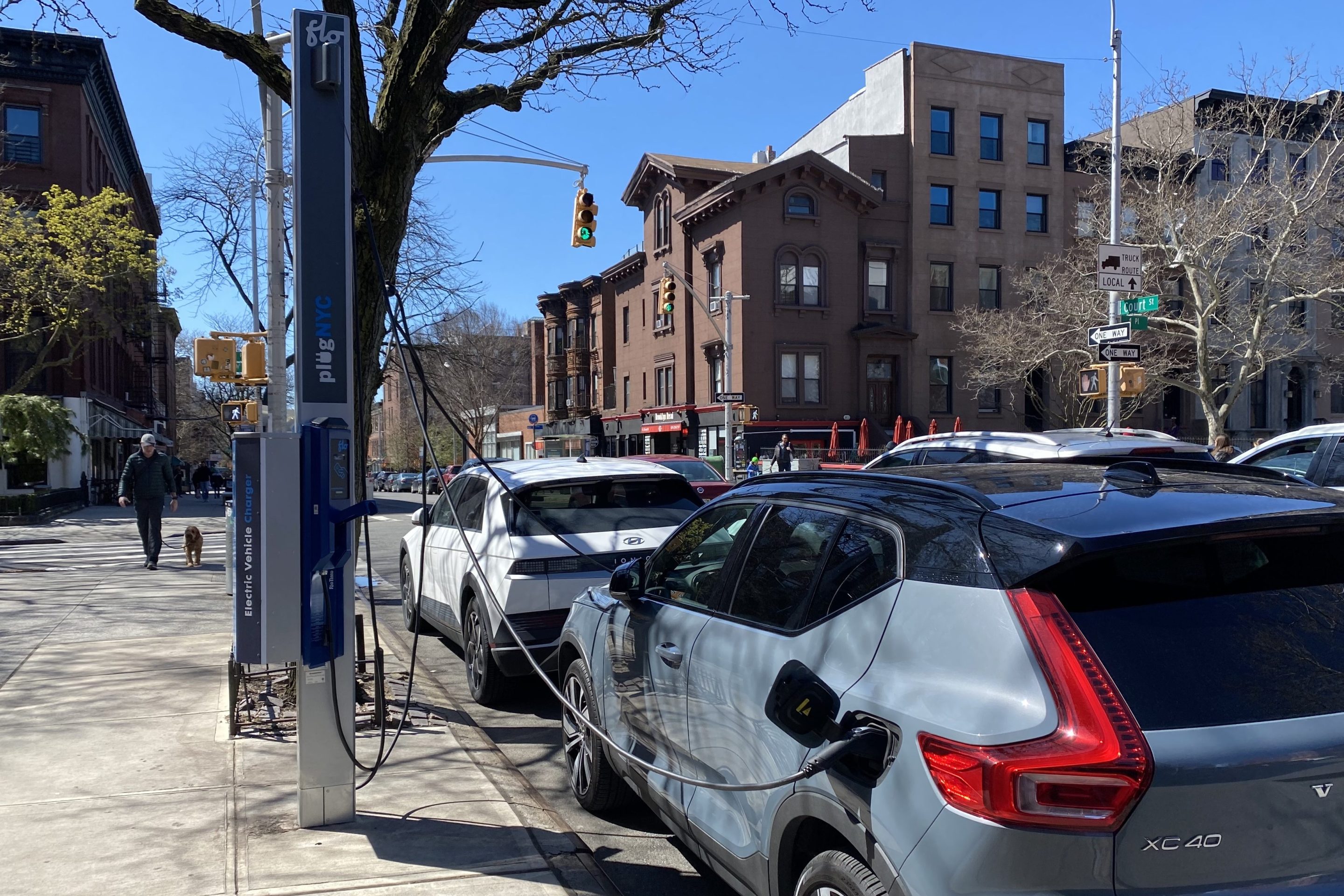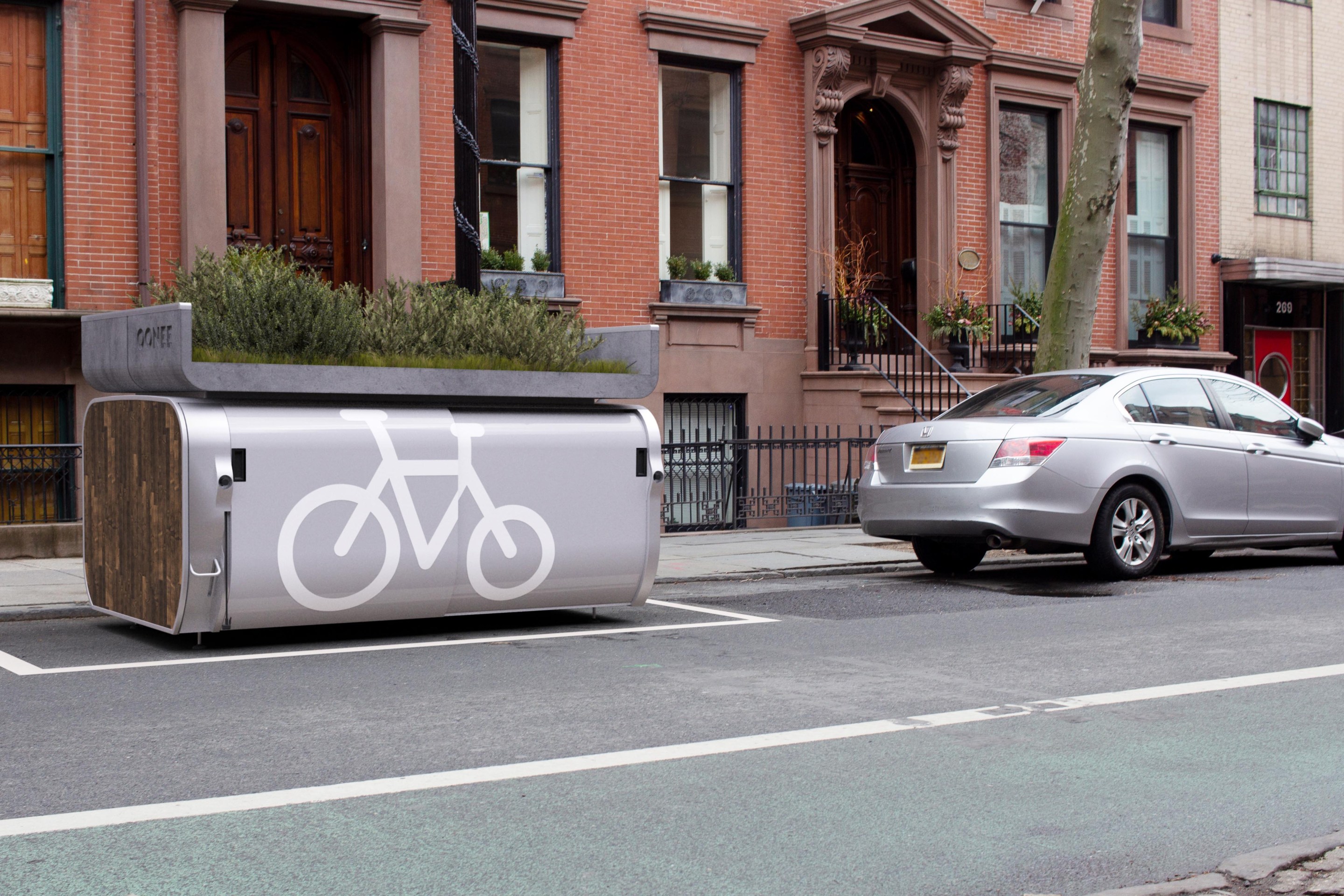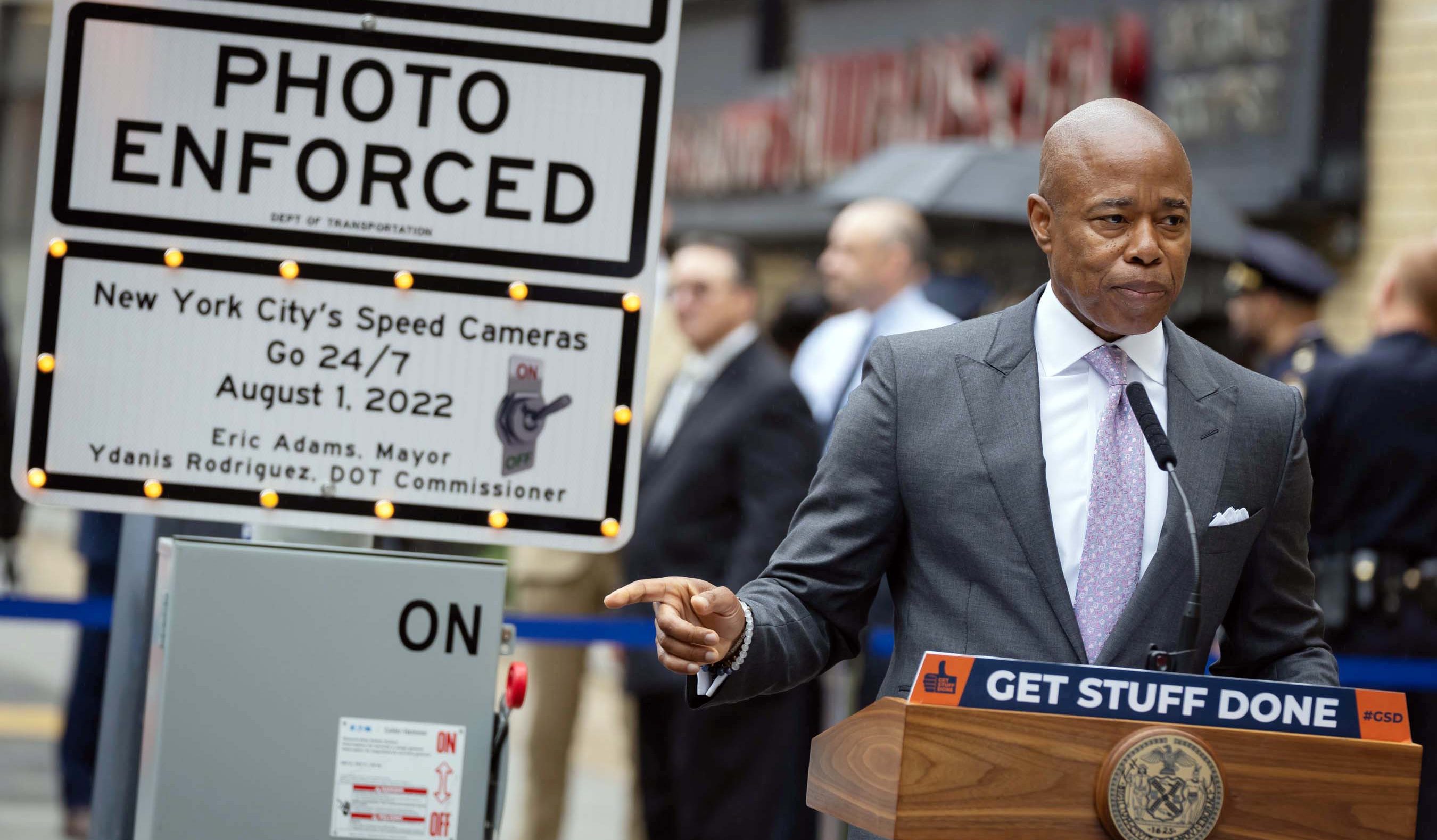UPDATE: Judge in Queens NIMBY Suit Declines to Demand City Halt Ridgewood Bus Lane
10:39 AM EDT on September 18, 2019
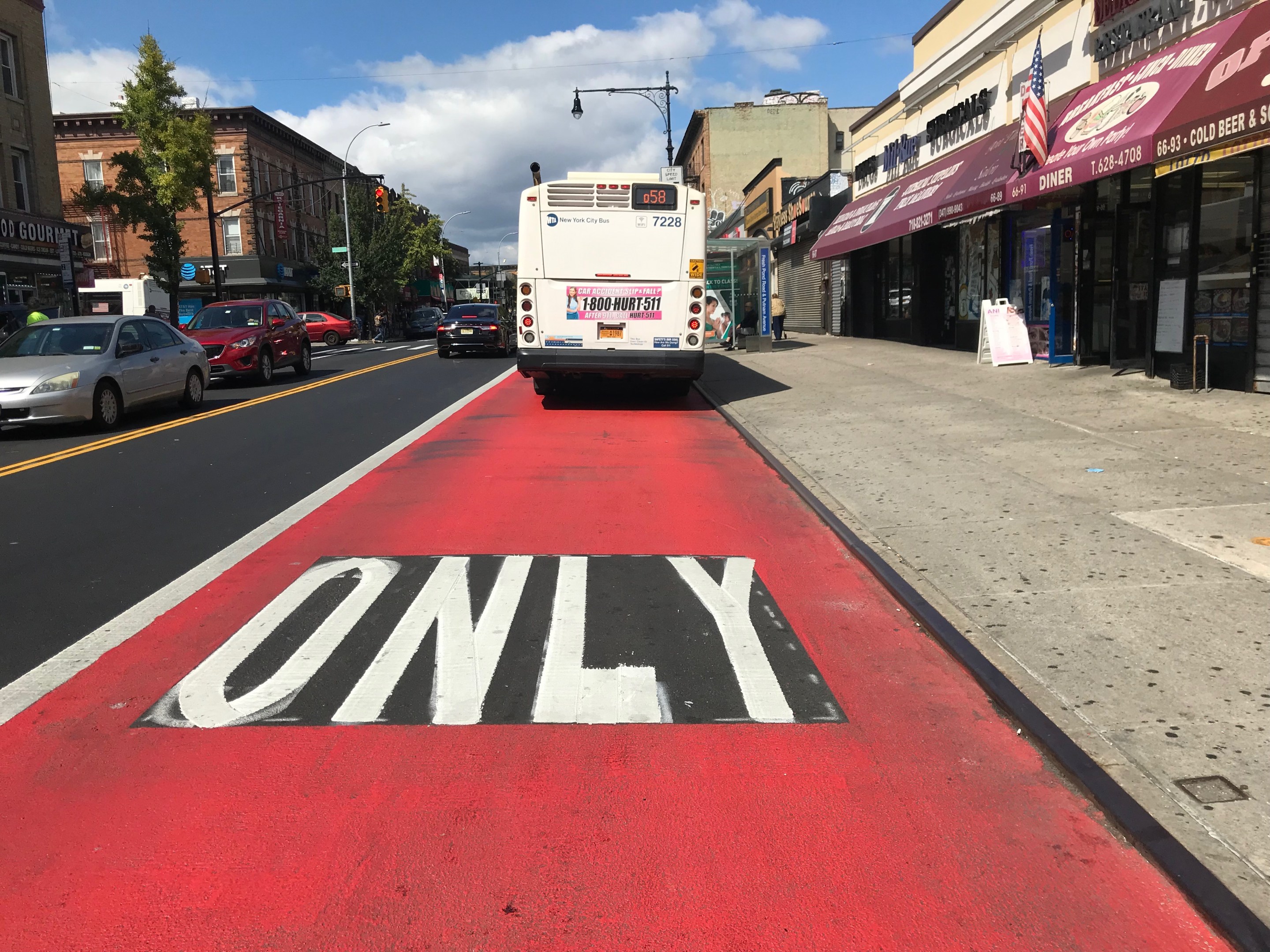
Coming to Washington Heights this spring! File photo: Dave Colon
A Queens judge has declined to force the city to undo its just-installed bus-only lane on Fresh Pond Road, handing a defeat to a self-styled neighborhood group that wanted to block the route on the grounds that it is "having a horrific impact on local business and pushing parking onto already crowded residential side streets."
Justice Joseph Esposito declined to give the Ridgewood Property Owners and Civic Association and a handful of local businesses an immediate restraining order that would have suspended the already-in-place bus route on the southbound portion of Fresh Pond Road, between Bleeker Street and Putnam Avenue, which operates only during the afternoon rush hour.
But Esposito said he would tour the route personally on Friday as part of his oversight of the lawsuit itself, which remains before him, despite his decision to deny locals the TRO they requested.
The lawsuit is the latest effort by community groups to block vital transit projects. Pending cases include a lawsuit to stop the car-free busway on 14th Street in Manhattan (which is being argued by the same lawyer, Arthur Schwartz), a road-diet plan for Morris Park Avenue and a fight by wealthy property owners on Central Park West to stop a protected bike lane because it would remove spaces for storage of privately owned cars.
The latest suit raises many of the same arguments in previous suits, specifically arguing that the promised benefit of the bus lane — a 25-percent increase in bus speeds — is not enough to justify the "significant impact on the local environment."
A central argument in Schwartz's paperwork is similar to what he argued in his fight against the busway, which the city cannot implement, thanks to a restraining order.
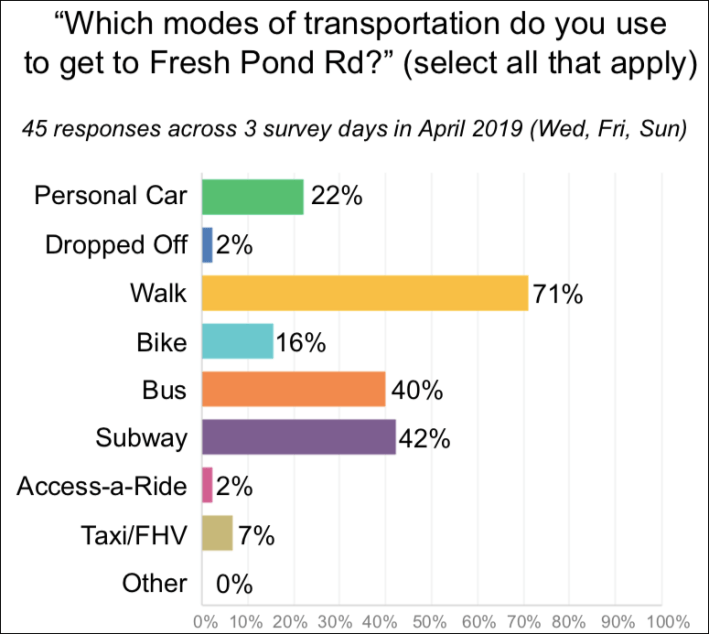
"All of this planning has been undertaken on an ad hoc basis by [the city], without carrying out any serious study of any sort about the impact of [the] proposed plans, ignoring feedback [officials] have received from what little community outreach they have engaged, and largely ignoring objections posed by local elected officials, the local community board, and the Ridgewood Property Owners and Civic Association," the paperwork argued.
This is, in fact, not true.
City officials conducted extensive outreach, including business surveys, and tweaked the proposal to include more loading zones and more metered parking on side streets and by reducing the hours of the bus lane's operation from a six-hour window to a four-hour rush-hour window. [City presentation PDF]
The Department of Transportation said its outreach to the neighborhood revealed that the majority of shoppers polled in a three-day survey said they walked or used transit to access Fresh Pond Road businesses — the same businesses that are complaining about the loss of parking. Only 22 percent of customers said they drove to Fresh Pond Road.
The DOT's surveys also determined that double- and illegal parking was a crucial part of the congestion problem on Fresh Pond Road.
The main issue for the DOT, of course, is bus speeds. In the evening rush hour, buses on Fresh Pond Road average just 3 miles per hour — less than half the 6.4 mph average in Queens, the city says. There are "continuous southbound traffic backup[s] in afternoon and evening," according to DOT.
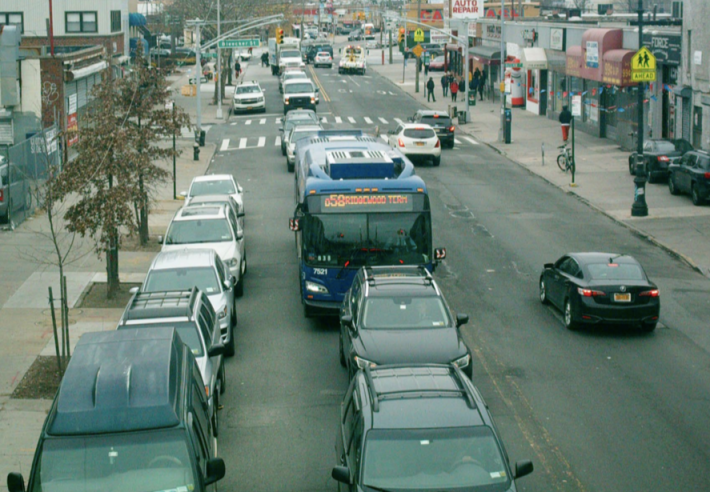
Southbound buses are slowest between 1 and 7 p.m. — and bus ridership is highest from 2 to 8 p.m., which provided the city with a strong basis for the dedicated lane on the southbound side during the afternoon rush."
Schwartz argued that, at best, the changes would allow bus riders to complete a 10-minute trip in 7.5 minutes. His larger line of attack is that the city did not study the alleged environmental impact of changing the configuration of the roadway — a change that the city has long argued does not require a full review, also known as a "hard look," under the State Environmental Quality Review Act.
The city's "failure to take a 'hard look,' and prepare and properly file and publish an Environmental Assessment addressed to the Fresh Pond Road Bus Plan, violates SEQRA and its attendant regulations," Schwartz's paperwork argues.
He also suggests that he's a better traffic planner than the experts at the city Department of Transportation.
"The most simple solution" to speed buses, Schwartz argued in court papers, "would be the elimination of left turns, barring truck unloading on the south side from 4-7, better synchronization of traffic signals, and enforcement of no double-parking regulations. Rational decision making would have started with an assessment of the impact of these changes, before turning to the morse radical alternative which DOT chose; their choice was flashier, but creates far more harm."
The suit did not come out of nowhere. Council Member Bob Holden and Assembly Member Catherine Nolan have been riding herd on the bus lane ever since it was proposed. The full community board had rejected the proposal in July, though the board's transportation committee had previously approved it. The issue for the pols and the full board was parking.
After initial publication of this story, Riders Alliance issued the following statement from its campaign manager Stephanie Burgos-Veras:
The lawsuit filed to stop the bus lane on Fresh Pond Road is frivolous. It's unfortunate that a small group of people are trying to block something that would benefit tens of thousands of riders. More than 28,000 people depend on buses that crawl at just 3 miles per hour along Fresh Pond Road — and are benefiting from the bus lane. Adding bus lanes is part of the Mayor's Better Buses initiative to improve bus speeds by 25 percent and improve reliability for the almost two million New Yorkers who ride the bus daily. When you block bus lanes, you block access to economic opportunity to bus riders who, on average, make $28K a year and are 86 percent people of color. Bus riders should have priority on New York City streets. This lawsuit should be dropped.
Read it all for yourself below.
Fresh Pond Road Petition Ridgewood Civic by Gersh Kuntzman on Scribd
Gersh Kuntzman is editor in chief of Streetsblog NYC and Streetsblog USA. He also writes the Cycle of Rage column, which is archived here.
Stay in touch
Sign up for our free newsletter
More from Streetsblog New York City
Thursday’s Headlines: Speed-Limiting Tech Edition
State Sen. Andrew Gounardes continues his push to force reckless drivers to install speed limiters in their cars. Plus more news.
DOT Official: All Our Free Parking Justifies Keeping Curb Space for EVs
If only someone could do something about the parking!
New York City to Install 500 Secure Bike Parking Hubs In The Next Five Years: Sources
Your bike may finally get a roof over its head.
Adams Backs Lower Speed Limits, Calls Crashes ‘Accidents’
The mayor wants New York City drivers to "slow down," but it's not clear yet how many streets will get lower speed limits.
Wednesday’s Headlines: Trump Posts About Congestion Pricing Edition
Donald Trump comments on congestion pricing — no surprise, he's against it. Plus more news.
